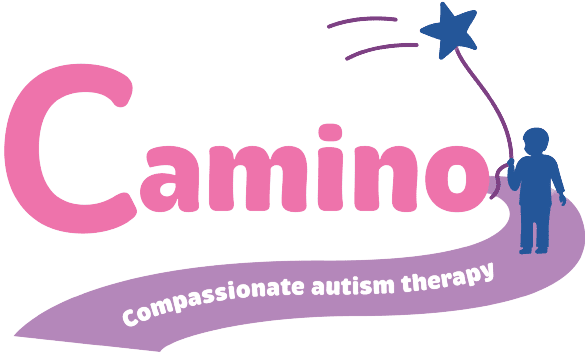Symptoms of Autism

Autism is a spectrum that touches each child differently.
Autism spectrum disorder is exactly that – a spectrum – that leads to unique strengths and challenges for each individual. The symptoms of autism might differ from person to person, but we celebrate everyone who come to us the same!
Defining Autism, Clinically Speaking.
We cherish your child and celebrate their unique qualities. We’re eager to meet them and discover all the wonderful things about them.
So, what exactly is autism? The spectrum of autism is wide, and it means different things to different people. However, understanding the clinical definition is crucial for accurate diagnosis and access to services that can help your child reach their full potential. Autism Spectrum Disorder (ASD) is a neurological and developmental condition that often affects social skills, and communication, and may involve repetitive or inflexible behaviors.
What might this look like in a child? It could be challenges in communicating or interacting socially, along with repetitive behaviors or limited interests. These traits can sometimes interfere with the development of other important skills.
Signs and Symptoms of Autism
Communication Challenges
Shortly after birth, as infants acclimate to their environment, they start exploring their own abilities. Within the first three months, pay attention to whether your child makes eye contact with you and if they return your smiles.
It’s important to remember that children develop verbal skills at their own pace, but there are key milestones to watch for. By the age of six months, notice if your baby starts babbling or mimicking sounds, especially during everyday activities like morning wake-ups, car rides, or playtime with toys. These are early signs of developing speech.
Then, observe their progress with words. By the age of two, many children can form simple two-word phrases and show signs of understanding or responding to speech. Remember, language development is a gradual process. If you notice any missing steps in this progression, or if there’s a regression, it could indicate a speech delay. In such cases, it’s advisable to consult with your pediatrician. Feel free to reach out to us for assistance in obtaining a referral.
Differences in Social Interaction
As children reach toddlerhood, they typically engage in parallel play, not fully interacting but comfortable near peers. In preschool years, play becomes more interactive. If your child shows a strong preference for solitude or discomfort around others, it’s advisable to seek professional advice. Our team can connect you with clinicians for autism testing.
Struggles with change
Young children often find big changes challenging, but an adverse reaction to minor routine alterations could signal more. If your child becomes unusually upset over small changes, such as a different walking route or seating arrangement, discussing this with a physician is recommended. Contact us for further guidance.
Sensory Difficulties
Sensory issues often linked to autism usually emerge in older children. These can include strong or unusual reactions to sensory stimuli. This symptom can appear as a really strong or unusual reaction to lights, sounds, smells, textures, and tastes, or the absence of a reaction to pain or stimuli.
As one example, this could mean a limited diet due to an intolerance for certain textures. Or maybe your child will only wear t-shirts made from a certain fabric or is inconsolable after hearing a car horn.
If your child shows extreme responses to sensory experiences or has specific preferences that seem unusual, it’s worth discussing with a pediatrician and considering autism testing.
Repetitive behaviors or restricted interest
For older children, watch for repetitive actions or intense focus on specific subjects.
This might appear as hand flapping, spinning, or a fascination with particular topics, like dinosaurs or alphabets, beyond a typical interest level. These behaviors, especially when coupled with other signs, may indicate autism.
If you observe such patterns, it’s important to consult with professionals to understand if it’s related to developmental issues. Reach out to us for support and answers.
Seek a Diagnosis Now
In an ideal situation, we would all have instant access to answers, but reality often works differently. At Camino Behavioral Health Services, our dedicated Autism Testing Team and Care and Benefits Coordinators strive to deliver answers to families up to six times faster than many other providers, an essential advantage in a field where time is of the essence.
But don’t just take our word for it. Listen to the experiences of other parents who have been in your shoes. Their unanimous advice is clear:
“Don’t delay. If we had the knowledge back then that we have now, we would have sought professional help much sooner. Getting a diagnosis is a critical step in effectively helping your child.”
If you’re concerned about your child missing developmental milestones or facing other challenges, there are immediate steps you can take. Utilize at-home autism screening tools like the M-CHAT and discuss the results with your pediatrician to decide if further, formal autism testing is needed – a service we provide for children as young as 15 months.
For a comprehensive understanding of our autism testing process and to set up an evaluation appointment at Hopebridge, we encourage you to familiarize yourself with the straightforward steps involved in obtaining an autism diagnosis.
Autism Myths
At Camino Health Services, we understand that Autism Spectrum Disorder (ASD) doesn’t impact a person’s intelligence, nor is it a contagious illness. When seeking information about autism, it’s essential to consult with trusted providers and explore reliable sources, as misinformation is widespread. We’ve addressed common autism misconceptions in our resources to help you discern fact from fiction.
Receiving an autism diagnosis might feel like labeling, but it doesn’t define an individual. Discovering that a loved one is on the spectrum can be daunting, yet it’s a crucial first step. This knowledge opens the door to understanding their unique world and potential, setting the stage for their success in school and life.
Importance of Early Identification
Identifying autism early can significantly change the course of your child’s life. Early intervention is key to developing a more fulfilling life for both the child and the family.
The brain is most adaptable in the first 7 years, making early childhood a prime time for learning. This period is critical for language development and building essential skills that foster independence and enhance the quality of life. Early identification, particularly for toddlers as young as 15 months, is vital.
Early and intensive interventions, such as Applied Behavior Analysis (ABA therapy), are crucial for addressing behaviors that might limit their potential. At Camino Health Services, we embrace your child’s uniqueness and are committed to providing compassionate care. Identifying whether your child’s behaviors or delays are related to autism sooner rather than later allows us to offer the most effective support, helping them to grow into their best selves.
Helping Children Understand Autism
If you’re considering the possibility that your child may have autism, you might be curious about how this could affect their interactions with siblings, classmates, and peers. We hold the view that neurodiversity enriches our world, bringing unique perspectives that enhance the lives of everyone, including those who forge friendships across different neurotypes.
For those who want to support neurotypical children or friends in understanding autism and embracing those with disabilities or diverse traits, we have created a Children’s Guide to Understanding Their Peers with Autism. This resource is designed to foster empathy and awareness, helping to build inclusive and informed relationships.
What is the Biggest Challenge Presented to Kids Diagnosed with Autism?
Getting Ready for School and Developing Essential Life Skills
Navigating the educational landscape can be particularly challenging for children with autism. While many schools are keen to accommodate students with ASD, there can be a gap between the skills these children possess and the requirements of the school setting. Additionally, schools may not always have the necessary resources to fully support their success. Our approach at our center is not to replace school, but to prepare children for the classroom environment.
Research indicates that children with ASD who engage in early intensive behavioral interventions, such as ABA therapy, for two to four years have a significantly higher likelihood of thriving in regular education settings compared to those who do not receive similar interventions (Sallows and Graupner 2005).
Starting therapy early can reduce the need to postpone school enrollment. Our aim is to equip children for success right from the start. Our therapy programs are designed to foster cognitive growth, and social integration, and provide diverse social experiences through ABA and other complementary therapies, setting a solid foundation before they step into a classroom.
The Benefits of Our Center-Based Therapy for School Readiness
If enrolling your child in school is one of your objectives, let us assist in making this transition smoother. Find out more about how our center-based therapy, starting as early as 15 months of age, can focus on preparing your child for school readiness. If your child is showing one of the symptoms of autism, our center-based therapy is here to help you through the process.
